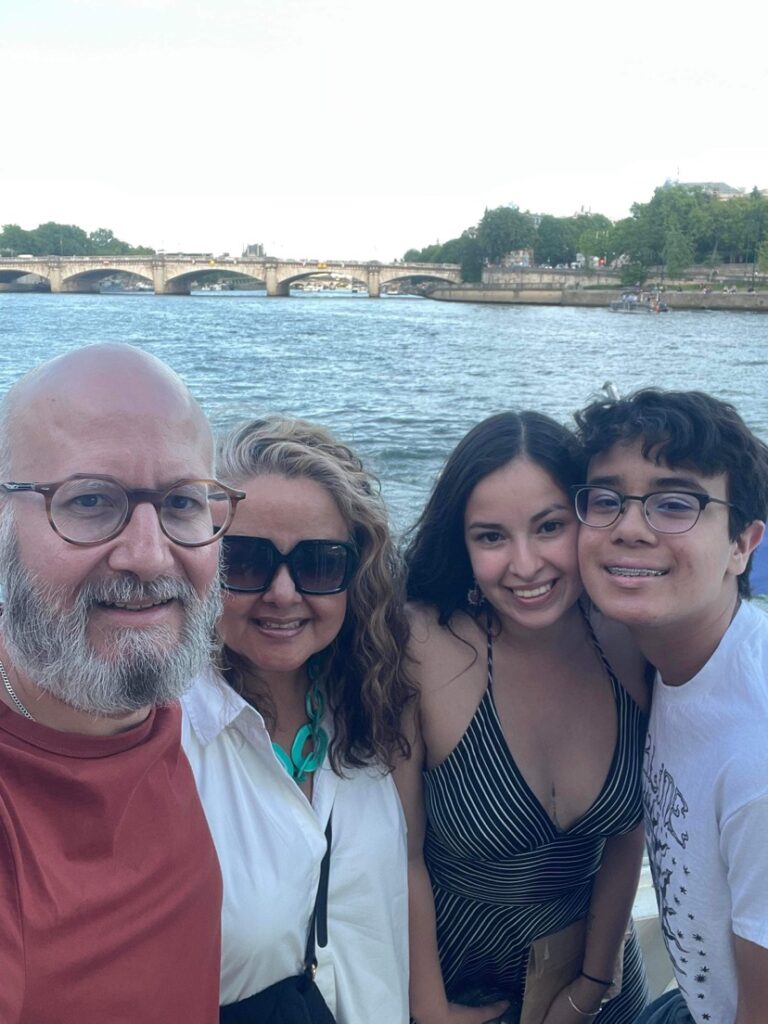Ariana and Andres Loor grew up in Champaign. Throughout their childhood, they were placed in dual-language classrooms to help them learn Spanish.
Now a 20-year-old student at Parkland College, Ariana said she is still learning the language.
“I am still trying to learn Spanish because I mean, you can only get better,” Ariana said.
Even though she’s fluent in English and Spanish, Ariana said her parents—who are both immigrants from Spanish-speaking countries—speak only Spanish at home.
She and Andres said their parents didn’t want their children to lose their heritage language.
“They’re both fluent in English and Spanish now, and they still only use Spanish at the house though,” Ariana said. “So even though we respond in English, they still only talk to us in Spanish.”
A report by U.S. Customs and Border Patrol released in October showed that officials recorded more than 2 million migrants on the Southern border during the 2022 fiscal year. This is a new record for the country, which had 1.7 million encounters last year.
The U.S. has also seen an increase in the number of migrants along the U.S.-Mexico border, with 227,547 encounters in September, according to the report.
As the number of Spanish-speaking immigrants in the U.S. rises, researchers are looking into the impact of language barriers within families—barriers that often come from Spanish-speaking parents and English-speaking children.
Ronald Cox, a researcher at Oklahoma State University who studies language barriers in multilingual families, said even though more Spanish-speaking parents are learning how to speak English, their children are losing their ability to speak Spanish.
“Their Spanish, for example, is going down, their English is going up,” Cox said. “At the same time, their parent’s English only goes up a little bit, they only make very modest gains.
“And so the parents only speak Spanish, the kids increasingly only speak English.”
As children get older, Cox said they will retain the basic phrases they learned during childhood. “Wash the dishes” or “Dinner is ready,” for example, may be phrases that are carried into adolescence.
At the same time, he said the child’s skills in grammar, vocabulary, and comprehension are rapidly increasing, but only in English.
“As a result, those more important, complex conversations that they would like to have with their parents, they’re just not able to,” Cox said.
Often, families are forced to become translators within their own homes, he said.
In his work, Cox said he routinely sees family members engage in “language brokering,” where they use technology like Google Translate to help interpret more complex phrases from English into Spanish.
“They come up with ways to try to work through this, but it’s a barrier that exists,” Cox said. “And even though they are adaptable and resilient, it can cause some pretty severe problems for families”
Val Smith, who teaches English to adults at First Presbyterian Church in Champaign, said many of her students speak Spanish as their first language.
Smith said many have expressed fears about helping their children with schoolwork once their kids reach school age.
“Some of them have expressed that they’re really just concerned about their children, that they can’t help them when they’re in school because they don’t know English as well as they’d like,” she said. “So, you know, there is some anxiety about that.”
Oliver Marquez, a sergeant for the Urbana Police Department and the son of two Spanish speakers, said his anxiety pertains less to learning English and more to ensuring that his own children learn Spanish.
Although Marquez is highly proficient in Spanish, he said sometimes he struggles with words, which poses challenges when he speaks to his own kids in Spanish.
“I’ve tried, but I think the biggest disconnect is like when the words are escaping you,” Marquez said. “It’s easier for me to just say something in English than try to find this word in Spanish”
In conversations with his parents, Andres Loor said he often relies on English to communicate.
“This is probably not like the best thing, but I just like made it a habit of responding to them in English, and then I would just understand what they say and then just, like, keep doing what I was doing,” he said.
His sister Ariana said she also struggles with the anxiety that comes from speaking Spanish when she knows it isn’t her first language.
“So when my parents speak to me or when I have to speak to other adults in Spanish, I get very nervous because I don’t have that initial thought in my head like, ‘Oh, it’s like my first language. Like, I can’t mess this up,’” she said.
For Andres and Ariana, however, being unable to communicate with their parents goes beyond speaking the language. It’s also about comprehension.
“We don’t understand what they’re trying to tell us, and they don’t understand what we’re trying to tell them, and then it just like, it does get lost,” Andres said. “Lost in translation.”
The siblings said they will continue learning Spanish to try to close this barrier between themselves and their parents.

